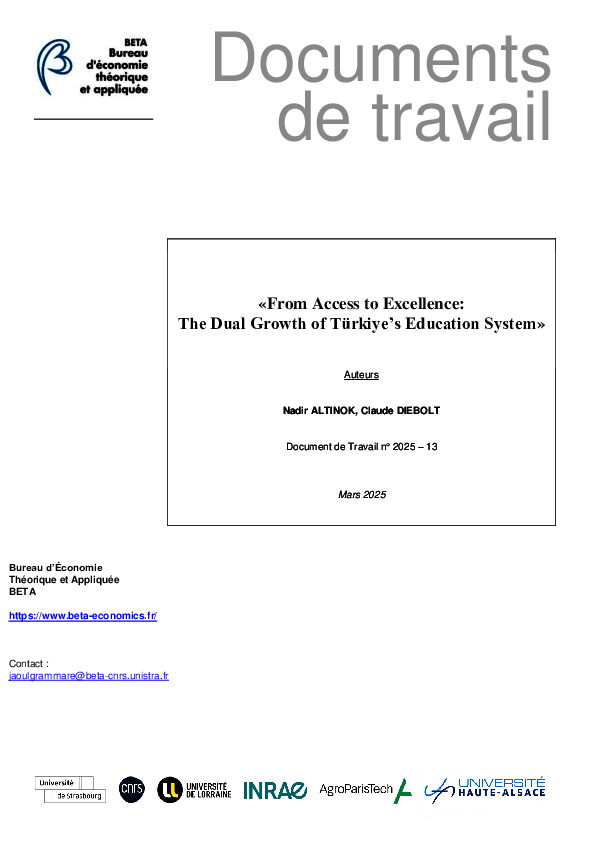Abstract
Türkiye experienced rapid growth in completion rates in both primary and secondary education over the last two decades. The completion rate at the secondary level increased from less than 60% in 2000 to almost 90% in 2023. We question to what extent this school expansion has impacted the quality of education in Türkiye. To do this, we use a new database of schooling quality from Altinok and Diebolt (Cliometrica, 2024) that provides comparable data from 1970 to 2020 for more than 130 countries around the world. In addition to this quality dimension, we also explore equity issues. In order to provide a macro analysis, we use a counterfactual approach by comparing the relative performance of Türkiye to the most similar developing countries. While Türkiye is one of the most challenging countries among the OECD members for ensuring access and retention of young people in formal education, we show that the recent democratization of education did not lead to a significant reduction in the quality of its schooling system. On the contrary, in parallel with this expansion of schooling access, Türkiye experienced significant progress on indicators evaluating the quality of education (mainly math and reading scores). However, as in other countries like France and Germany, inequality in access, completion, and skill levels remain high in Türkiye and will likely be among the most pressing education policy challenges in the coming years.
Download the working paper
Keywords: PISA, Türkiye, Schooling Quality, Economics of Education, Development, Edumetrics, Cliometrics.



